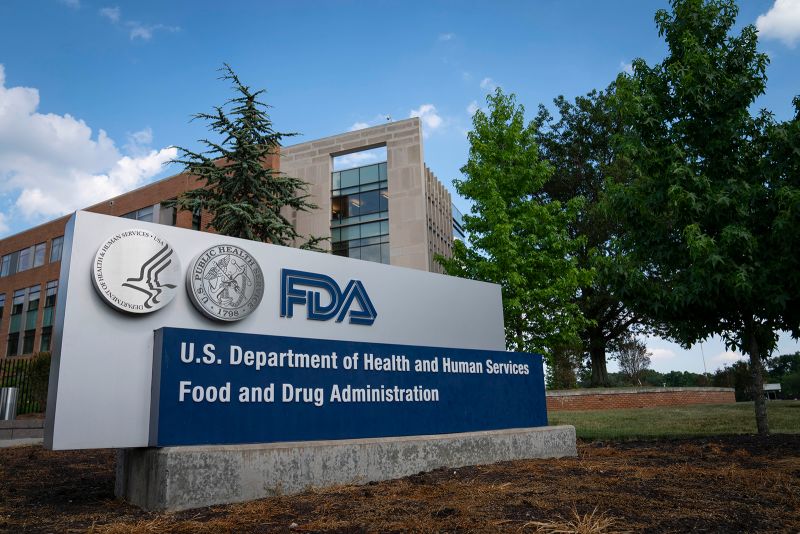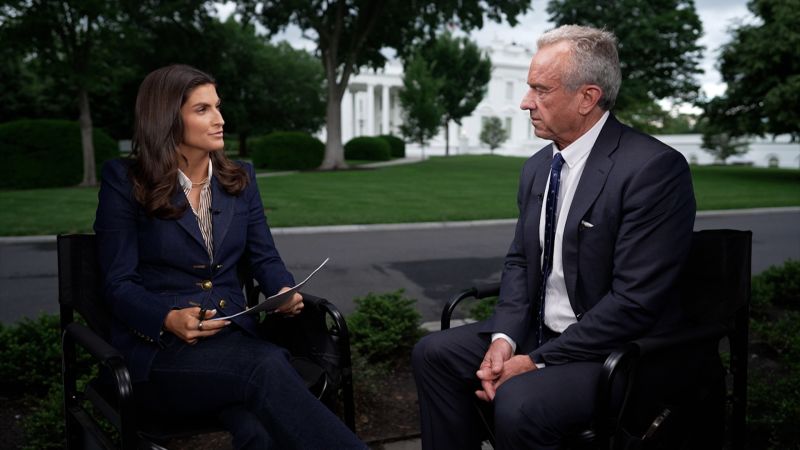RFK Jr. says Covid-19 shot will no longer be recommended for healthy children and pregnant women

US Health and Human Services Secretary Robert F. Kennedy Jr. announced Tuesday that the Covid-19 vaccine will no longer be among the recommended vaccines for pregnant women and healthy children on the US Centers for Disease Control and Prevention’s immunization schedule.
The immunization schedule posted online had not changed as of mid-Tuesday.
Kennedy announced the unusual step in a video posted on social media. He was flanked by US Food and Drug Administration Commissioner Dr. Marty Makary and National Institutes of Health Director Dr. Jay Bhattacharya.
“As of today, the Covid vaccine for healthy children and healthy pregnant women has been removed from the CDC recommended immunization schedule,” Kennedy said. “Last year, the Biden administration urged healthy children to get yet another Covid shot, despite the lack of any clinical data to support the repeat booster strategy in children.”
Kennedy offered no scientific evidence to justify the change to the recommendations.
But experts say the shift will have devastating consequences, particularly for pregnant women and their babies. Both are considered to be at higher risk of severe complications of Covid-19 infections. Studies have found that Covid-19 vaccination reduces the risk of hospitalization for pregnant women and infants younger than 6 months.
“This runs contrary to what we know about the safety as well as the benefits of Covid-19 vaccination for both young children and pregnant women,” said a person familiar with the CDC’s deliberations on its vaccine recommendations, who asked not to be named for fear of retaliation.
Dr. Steven Fleischman, president of the American College of Obstetricians and Gynecologists, said in a statement Tuesday that “the science has not changed. It is very clear that COVID infection during pregnancy can be catastrophic and lead to major disability, and it can cause devastating consequences for families. The COVID vaccine is safe during pregnancy, and vaccination can protect our patients and their infants.”
“In fact, growing evidence shows just how much vaccination during pregnancy protects the infant after birth, with the vast majority of hospitalized infants less than six months of age – those who are not yet eligible for vaccination – born to unvaccinated mothers,” Fleischman added.
Kennedy’s decision may affect insurance coverage as well as government purchasing of the shots, experts said.
“The outcome of this will be that the Covid-19 vaccines are less affordable and less available,” said Dr. Paul Offit, a pediatrician and director of the Vaccine Education Center at Children’s Hospital of Philadelphia.
The announcement stands in sharp contrast to what Kennedy has said since becoming HHS secretary. “I always said during my campaign — and every part, every public statement I’ve made — I’m not going to take people’s vaccines away from them,” he told CBS in April. “What I’m going to do is make sure that we have good science so that people can make an informed choice.”
But, Offit said Tuesday, “He lied, because that’s exactly what he’s doing. He’s taking them away.”
Change bypasses typical process
In announcing the change, Kennedy bypassed the government’s normal process for evaluating and recommending vaccines for Americans.
Typically, the FDA evaluates the safety and effectiveness of vaccines by reviewing data from clinical trials and other research. Once the FDA approves a vaccine, the CDC and its committee of independent vaccine experts, called the Advisory Committee on Immunization Practices or ACIP, will recommend how a vaccine should be used, including who should get them and how often they’re needed. The CDC doesn’t have to accept ACIP’s recommendations, but it typically does.
ACIP’s recommendations carry regulatory weight. Under the Affordable Care Act, insurance companies are required to cover vaccines for adults if they’ve been recommended by the ACIP. The advisory committee also votes on whether vaccines should be added to the federal Vaccines for Children program, which provides vaccines to children who would not otherwise be able to afford them.
Revoking the CDC’s recommendations for pregnant women and healthy children raises questions about insurance coverage and government purchases of Covid-19 vaccines for these groups.
Health insurance companies can decide to cover Covid-19 shots on their own, even without a formal CDC recommendation. It’s likely that they will do so, given that scientific evidence backs the vaccines as safe and effective, according to a person familiar with the legal ramifications of dropping the CDC’s recommendation, who asked not to be named for fear of retaliation.
It could mean the Vaccines for Children program won’t cover the shots, however, the person said.
“This is really bad administrative procedure,” Dorit Reiss, a professor of law at the University of California at San Francisco, wrote in a post on social media.
“Under administrative law, to avoid being found arbitrary and capricious an agency’s decision has to meet certain criteria, including explaining the agency’s fact finding, a connection between the facts and the decisions, etc.,” Reiss wrote. “A one minute video on Twitter doesn’t quite get you there.
“If they’re challenged in court, it will be an issue,” she said.
More Covid vaccine changes
CDC’s vaccine advisers had already been considering a change to the nation’s Covid-19 vaccine recommendations. Instead of the blanket recommendation that everyone 6 months and older should get an updated annual shot, the committee was weighing whether to make more targeted risk-based recommendations, which would include everyone 65 and older and those with compromised immune function.
In an April meeting, a majority of the working group members studying the change said they supported narrowing the recommendation. The full committee planned to vote on it at their next meeting in June.
Instead, Makary and Dr. Vinay Prasad, director of the the FDA’s Center for Biologics Evaluation and Research, wrote an editorial in the New England Journal of Medicine to announce a change to how the FDA would approve Covid-19 vaccines. The agency said it would require placebo-controlled clinical trials before it would license new vaccines for healthy kids and adults 64 and younger.
“Although the rapid development of multiple Covid-19 vaccines in 2020 represents a major scientific, medical, and regulatory accomplishment,” Makary and Prasad wrote, “the benefit of repeat dosing – particularly among low-risk persons who may have previously received multiple doses of Covid-19 vaccines, had multiple Covid-19 infections, or both – is uncertain.”
They said the new policy would spur drug companies to generate additional evidence to prove that healthy young adults and children benefit from the shots.









